A salad without vinegar is almost unthinkable for many people. Vinegar is an uncomplicated food that, in addition to its use in the household, is primarily used for seasoning and in some variations is even considered a special delicacy. If a few points are considered when choosing the vinegar, the vinegar can also have positive effects on health.
What you should know about vinegar

Vinegar is a sour condiment with a long tradition. It is created in the classic way through fermentation, i.e. the fermentation of alcoholic liquids to which vinegar bacteria, the so-called "mother vinegar", have been added. Vinegar suitable for consumption may contain between 5 and 15 percent acetic acid. Alcohol is only present in very small amounts in the finished product, if at all.
Vinegar was produced and used in different parts of the world around 5000 to 8000 years ago. In Babylonia and Egypt, as well as in parts of Asia and India, wine or other excess alcohol was allowed to ferment in the air. This traditional production of vinegar is considered to be the oldest biotechnological process for producing a food in the world. The vinegar obtained was used to preserve food such as vegetables and meat and is also considered the oldest seasoning in the world. There are various more or less modern processes for the production of vinegar. Alcoholic beverages are usually used as the basis, and more rarely sugary beverages such as fruit juice.
In the so-called "surface method", the alcoholic base is filled into a container with a large opening and left to ferment covered with a cloth. This creates the "mother of vinegar". This is a skin with vinegar bacteria that causes it to ferment into vinegar. The very first vinegar in the world was produced according to this well-known principle of the surface process.
Today, vinegar production is far more modern and effective. The minimum time required is only one to three days, depending on the system. The mostly alcoholic base is mixed with existing vinegar bacteria. In modern "turbine systems" the fermentation of the alcoholic base into vinegar then only takes around 24 hours. If, on the other hand, the vinegar was obtained from acetic acid that was simply diluted with water, this must be indicated on the label. However, this is also a common variant of making vinegar.
Particularly popular types of vinegar are brandy vinegar, white wine vinegar, fruit vinegar such as apple cider vinegar and balsamic vinegar. Other popular varieties are rice vinegar, raspberry vinegar, and red wine vinegar. Depending on the dish and intended use, certain types of vinegar go particularly well with the respective taste of the food used.
Importance to health
Whether vinegar is healthy or less healthy depends heavily on its quality and how it is made. Basically, every vinegar contains some valuable ingredients. Vinegar was therefore a valued remedy even in ancient times.
In particular, it helps against digestive problems, as it stimulates the body's own production of digestive juices. Vinegar is also said to be helpful for respiratory diseases. It also helps to keep the blood sugar level constant and thus to avoid cravings. This makes it a valuable companion in a diet.
High-quality vinegar should only contain a small amount of acetonic acid. The high-quality ingredients and minerals of vinegar are best preserved in naturally cloudy organic vinegar, for example in apple cider vinegar. Such vinegar was not heated, nor was it clarified. The resulting cloudy color may seem daunting at first glance, but it is a quality criterion in terms of health. Balsamic vinegar, while particularly popular, is typically not the healthiest variety of vinegar. It is particularly common to find residues of harmful substances in it.
Ingredients & nutritional values
The nutritional values of vinegar can vary widely. On average, 100ml vinegar contains:
- 20kcal (82kJ)
- 0.4g protein
- 0.6g carbohydrates
- 0.1g fat
Balsamic vinegar has higher nutritional values. 100ml balsamic vinegar contain on average:
- 108kcal (452kJ)
- 0.1g protein
- 22g carbohydrates
- including 14g sugar
- 0g fat
Minerals contained in 100ml vinegar on average:
- 15mg calcium
- 0.5mg iron
- 1μg iodine
- 90mg potassium
- 20mg magnesium
- 0.2mg zinc
Intolerances & allergies
Vinegar is high in histamine. People with a histamine intolerance not only react to vinegar itself, but also to all products that contain vinegar with allergy-like symptoms. In addition to pickled vegetables, such products also include mustard or various sauces. Since vinegar contains a lot of acid, sensitive people can experience problems after consumption for this reason too. The stomach often reacts to the high acid content with complaints.
Shopping & kitchen tips
Vinegar is a common food that is available in every supermarket and discount store at a low price. However, vinegar is also considered a delicacy. High-quality vinegars with unusual flavors, produced in only small quantities, can even be found in delicatessen stores. Manufacturers like to experiment with the combination of vinegar and fine fruits in particular. Vinegar is also popular in combination with various herbs.
Vinegar is very straightforward to store. Since it is often used as a preservative, it stands to reason that vinegar itself has a very long shelf life. However, if stored incorrectly, even vinegar can go bad. It is important that the vinegar is hermetically sealed. Storage in a dark and rather cool place is ideal, but not a must. Vinegar can therefore be stored in the kitchen cupboard without any problems even after the bottle has been opened for the first time.
Incidentally, vinegar is not only suitable for cooking, but also as a versatile cleaning agent in the household. It not only removes dirt, but also limescale and rust. It can also be used for personal hygiene.
Preparation tips
Vinegar is particularly good in salad dressings, for example in combination with high-quality vegetable oils and spices. Apple cider vinegar and white wine vinegar in particular go well with vegetable salads, the latter also with potato or pasta salads. Vinegar is also a good ingredient for marinades.
The combination of vinegar and sweets is also interesting, for example in desserts or in the vinegar itself. Desserts with fruits such as strawberries and balsamic vinegar are a popular taste experience. Furthermore, vinegar is suitable for the independent preservation of vegetables or fruit. Food that is put in an airtight jar together with vinegar will keep much longer.

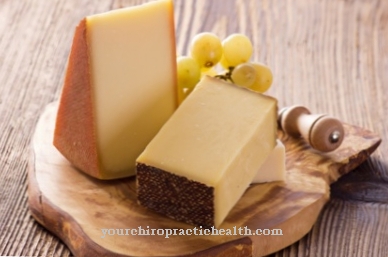
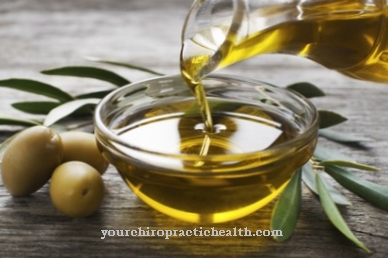

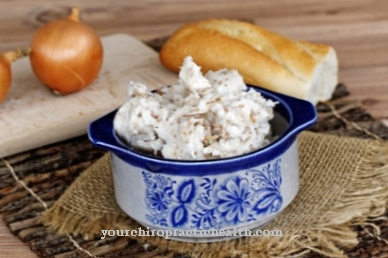
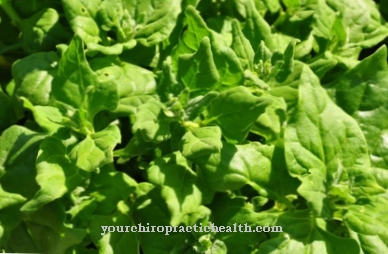
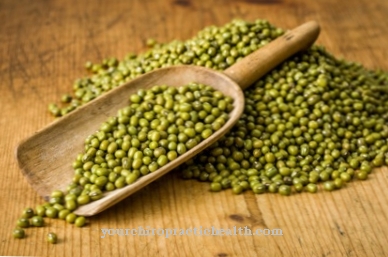






.jpg)

.jpg)
.jpg)











.jpg)